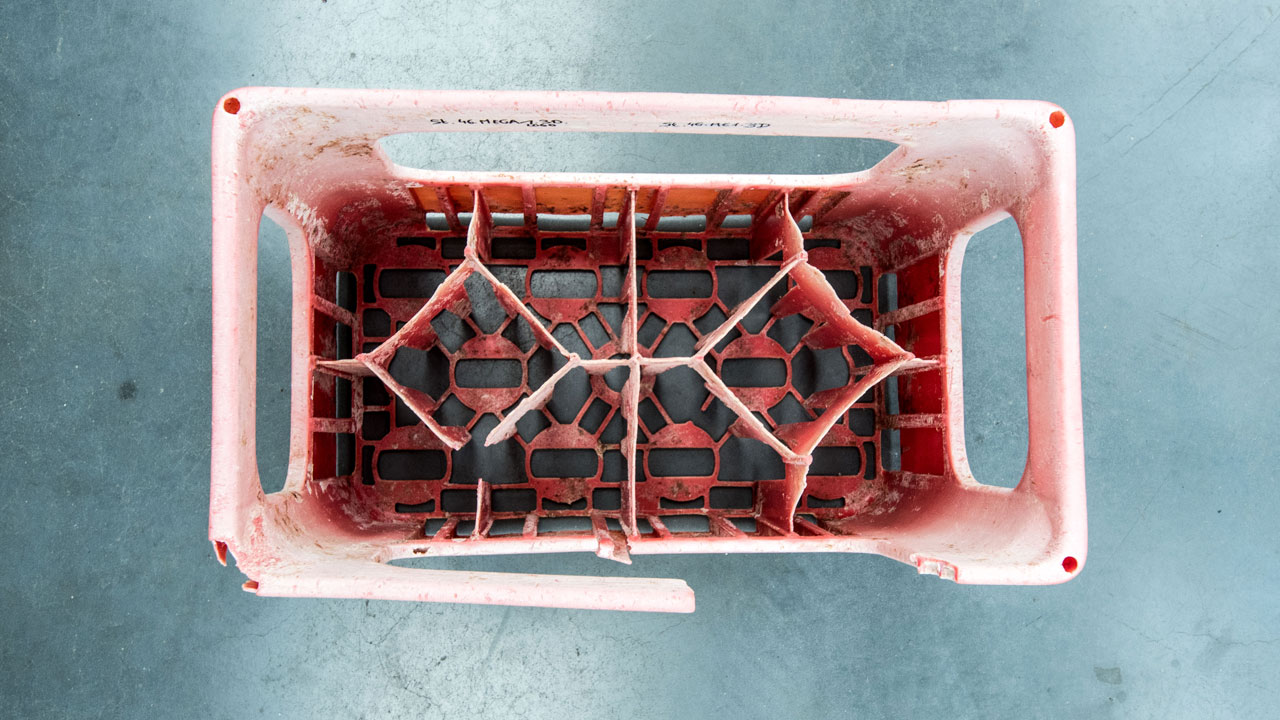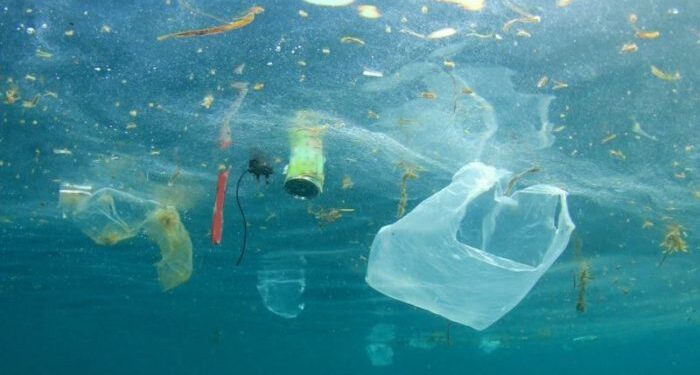On the occasion of the World Environment Day, SAFETY4SEA provides an in-depth insight into a global menace which has attracted global attention in recent years due to its rising magnitude: Ocean plastics. Plastics make up 85% of marine litter globally and are even reaching people’s dinner tables, with micro-plastics in the water and food having an unknown impact on their health.
But where does all this plastic lie? The largest accumulation of ocean plastic in the world can be found between Hawaii and California, in the North Pacific and is no other than the so-called Great Pacific Garbage Patch (GPGP). The GPGP covers an estimated surface area of 1.6 million square kilometers, an area twice the size of Texas or three times the size of France.
Controversy
Although the name “Pacific Garbage Patch”, a term often used by the media, has led many to believe that this area is a large and continuous patch of easily visible marine debris, this is not the case. The GPGP refers more to a ‘diffuse soup’ of plastic floating in the oceans, rather than to an island of trash, visible from space. This means much of the debris is actually small pieces of floating plastic not immediately evident to the naked eye.
It is estimated that 1.15 to 2.41 million tonnes of plastic are entering the ocean each year from rivers. Once these plastics enter the gyre, they are unlikely to leave the area until they degrade into smaller microplastics under the effects of sun, waves and marine life. As more and more plastics are discarded into the environment, microplastic concentration in the Great Pacific Garbage Patch will only continue to increase.
A study earlier in the year by the Dutch Foundation ‘The Ocean Cleanup’ in the area found:
- More than 1.8 trillion pieces of plastic are currently in the patch weighing an estimated 80,000 tonnes.
- This is 4-16 times more than previous calculations.
- It is equivalent to 250 pieces of debris for every human in the world
- Characteristics of the debris in the area, such as plastic type and age, prove that plastic has the capacity to persist in this region.
- Microplastic mass concentration is increasing exponentially – proving that the input of plastic in the patch is greater than the output. Unless sources are mitigated, this number will continue to rise.

Why it is important
While plastics themselves consist a significant threat for the world’s oceans, this persistent accumulation in the area creates dangers for plastics to break down into smaller plastics, called microplastics, as a result form sun exposure, waves, marine life and temperature changes. Once they become this small, microplastics are very difficult to remove and are often mistaken for food by marine animals.
The implications caused by plastic pollution are well-known and the Great Pacific Garbage Patch case makes no exemption:
1. Harming marine life:
-Suffocating: Fishes, turtles, albatrosses and other marine species often misinterpret a plastic object as food, resulting in chocking upon they try to swallow it.
-Entanglement: It is often for birds and fishes to getting entangled through fishing gears or plastic bags and slowly dying due to an inability to breathe.
-Injury: Pack rings or plastic fishing nets may have sharp edges and can cut or wound an animal grievously.
2. Affecting human food chain:
People cannot escape from these implications. Chemical in plastics have the potential to bioaccumulate throughout the food chain and negatively impact on human health when consumed with seafood. Plastic has been found in nearly every level of the oceanic food chain: from large predators like sharks and whales to turtles and jellyfish, even plankton.
3. Affecting global economy:
Related economic costs include those linked to clean-up operations, litter removal, the repair and replacement of damaged vessels and gear, reduced fishing catches, and a decline in coastal tourism and impact on related industries. The UN reported that the approximate environmental damage caused by plastic to marine ecosystems represents 13 billion USD. This figure included the cost of beach cleanups and the financial loss incurred by fisheries.
Did you know?
- There are currently five offshore plastic accumulation zones in the world’s oceans, located in the North and South Pacific, the North and South Atlantic, and the Indian Ocean.
- The Garbage Patch is created by the North Pacific Gyre. A Gyre is a system of circulating currents in an ocean, caused by the Coriolis Effect.
- Floating at the surface of the Great Pacific Garbage Patch (GPGP) is 180x more plastic than marine life.
- Most of the plastic debris in the Garbage Patch is from land-based sources and survives the long trip, because conventional plastic does not biodegrade
- Studies show 700 species in the area have encountered marine debris, and 92% of these interactions are with plastic. 17% of these are on the IUCN Red List of Threatened Species
- Of the 1.5 million Laysan albatrosses that inhabit Midway, nearly all are likely to have plastic in their digestive system. Approximately one-third of their chicks die, mostly due to being fed plastic by their parents
- Sea turtles by-caught in fisheries operating within and around the patch can have up to 74% of their diets composed of ocean plastics
- Fishing nets account for 46% of the mass in the GPGP
- A 2009 research trip to the Great Pacific Garbage Patch by Scripps Institution of Oceanography found 9% of the fish had ingested plastic.
- About 80% of the debris in the GPGP comes from land-based activities in North America and Asia and the other 20% comes from boats, offshore oil rigs, and large cargo ships.
Actions taken
Realizing the problem’s magnitude, the global community has begun in recent months to take concrete actions to eliminate the plastic accumulation in the ocean.
Series blog posts on plastic marine debris and microplastics
- Last week, the European Commission proposed new EU-wide rules to target the 10 single-use plastic products most often found on Europe’s beaches and seas, as well as lost and abandoned fishing gear, which together constitute 70% of all marine litter items. The Commission’s proposals will go to the European Parliament and Council for adoption, hoping to deliver tangible results before May 2019.
- Earlier in 2018, at the start of the Commonwealth Heads of Government Summit, the UK Government announced plans to ban the sale of plastic straws, drink stirrers and plastic-stemmed cotton buds.
- The Port of Amsterdam is constructing a new facility that will convert non-recyclable plastic into fuel for the transport sector. The plant will be built in collaboration with Port of Amsterdam and is expected to running by the end of this year.
- Associated British Ports’ facilities in Hull and Goole are trialing a recycling scheme which turns waste into shampoo bottles, in cooperation with TerraCycle and Proctor and Gamble. The shampoo bottles are expected to go on sale at a major UK retailer later this year.
What YOU can do
1. Stop polluting: You are a small but not less important piece of a global fight to the earth’s protection. Scientific assessments on the issue all over the years have concluded that the only cheap, simple, and far most efficient solution to the problem is persuading people to stop littering, by reducing plastic in every aspect of their lives, with an emphasis on plastic water bottles and plastic bags. Every single individual in the world is smart enough to understand what is sustainable and act in accordance. In any case, the ‘3 Rs’ moto can help us make sustainable use of our oceans: Reduce, Reuse, Recycle!
2. Create awareness: Scientists, researchers, and authorities are not the only ones responsible for ringing emergency bells for the planet’s sake. If each one of us spread our words and concerns on issues that really affect us, the change would be imminent. The more people are aware the more chance on change.






























































